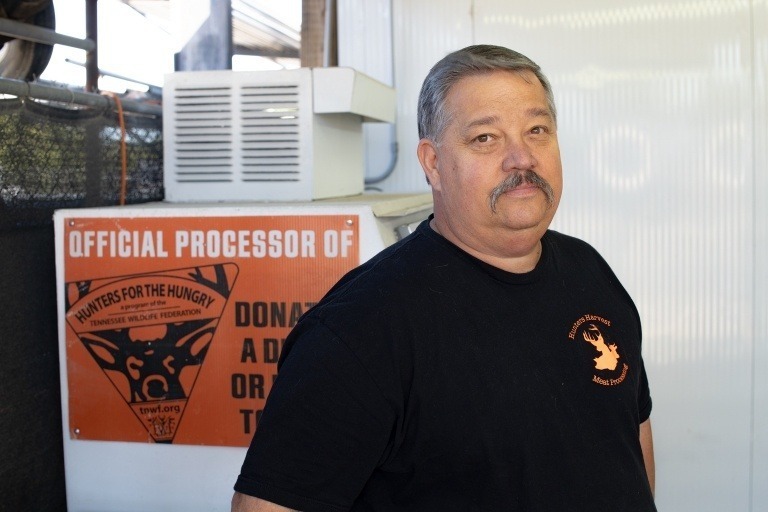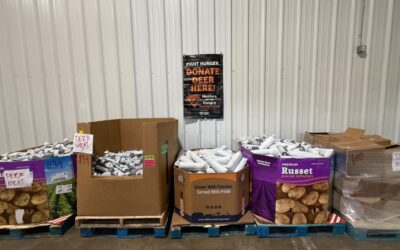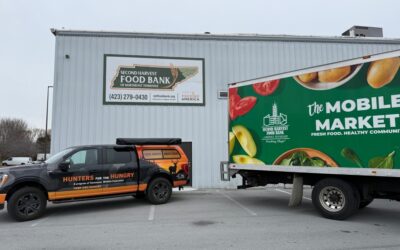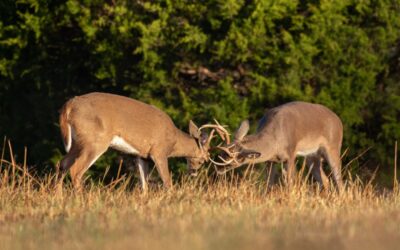Deer processors across the state are a critical link in the Hunters for the Hungry program.
Deer season is here and Hunters for the Hungry is once again asking hunters to donate their harvest to help feed those in need. More than 55 deer processors across the state are accepting whole deer donations, at no cost to the hunters who donate them.
The venison is processed and then provided to community food banks and soup kitchens.
“This program changes lives and we are so grateful to the hunters, processors, and food banks that step up year after year to help their communities.”
Matt Simcox, Hunters for the Hungry Manager
In particular, one man from Clarksville has made it his mission to process as many donations as he can.
Keith Clow
Keith Clow, owner of Hunters Harvest Deer Processing and recipient of the 2021 Dan & Cherie Hammond Sharing the Harvest Award, has been a certified processor for the program since he opened his business in 2006.
In his 15 years with the program, Keith has processed 530 deer providing 90,000 servings of protein to locals in need.
He hit his personal best in 2020, processing a total of 109 whole deer donations.
But he’s not done. Keith has an even bigger goal this year. “We’re really pushing this year, we’re going to try to do 200.” That equals 33,600 servings of healthy, lean protein.
For Keith, the more people he can help feed the better.
“If you’ve ever been hungry in your life, you understand wanting to donate a deer to help somebody else who is hungry,” said Keith. “We’re still helping people out, we’re feeding folks, and we’re trying to get rid of hunger in our area.”
CWD Testing
In partnership with the Tennessee Wildlife Resources Agency (TWRA), Hunters for the Hungry will test every deer donated within Unit CWD (Chronic Wasting Disease) for the disease. Hunters for the Hungry will also test many of the donations made outside Unit CWD in Region 1.
In an abundance of caution, Hunters for the Hungry will continue to discard all donations that test positive for CWD. There is no evidence CWD is transmitted to humans, but the CDC still recommends against eating CWD-positive meat.




